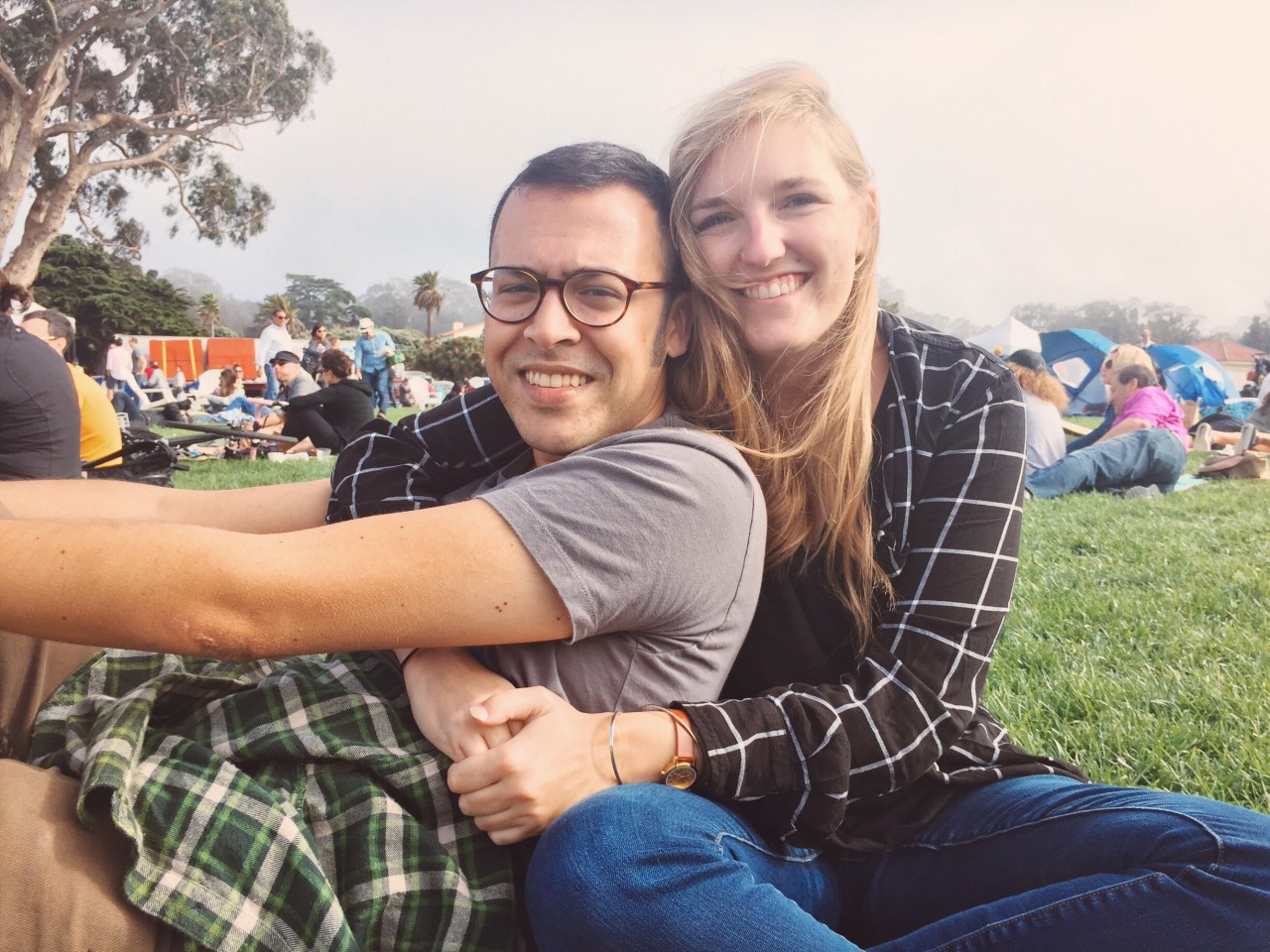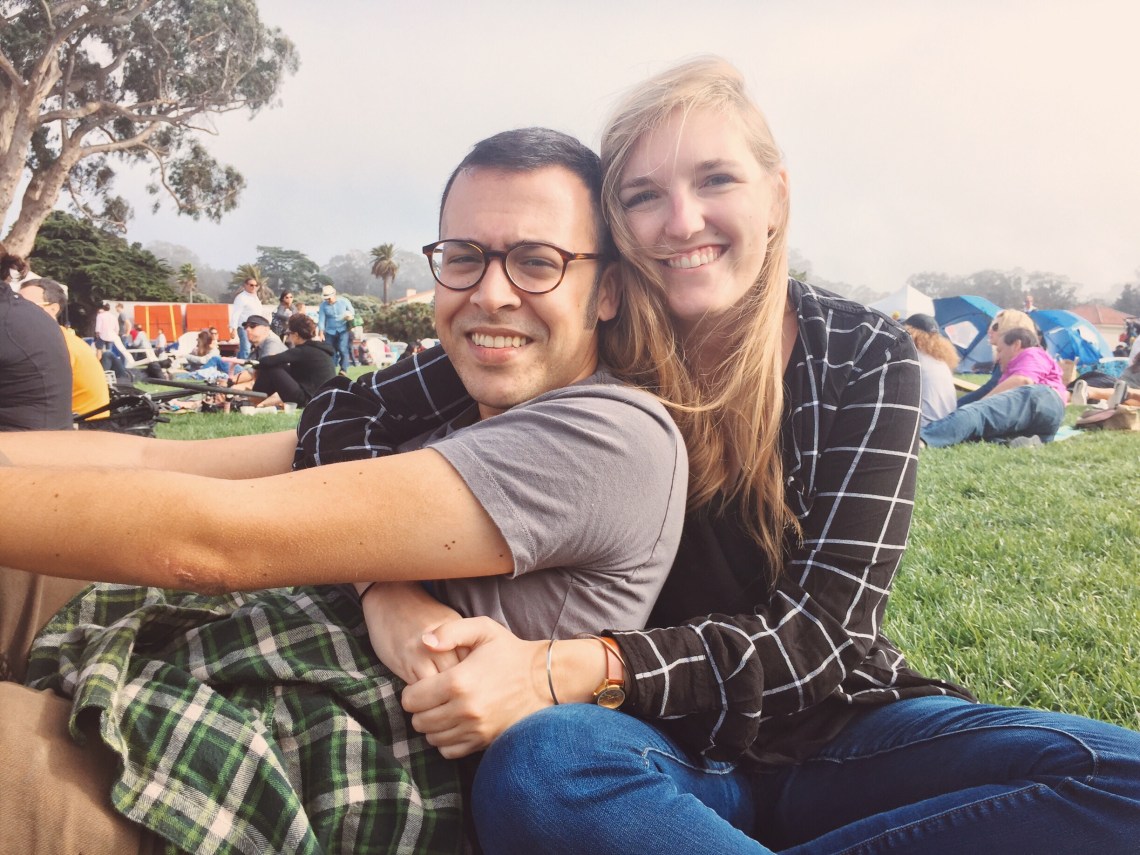
Why The Friendship-First Approach To Dating Actually Works
Sex and romance can definitely still happen in the context of friendship-first dating, but they are never assumed or expected, and the top priority is always to understand and validate someone’s existing preferences and goals rather than imposing your own goals and expectations upon them.
By ![]() Steve Dean
Steve Dean

Last year, I met a girl named Jessica on OkCupid and we agreed to meet up and go on an adventure date throughout Seattle. We explored new neighborhoods, meandered through parks, and people-watched out of a coffee shop’s balcony. The next week, I hosted a board game night and invited her so she could meet some of my friends. Over the course of our time together, we talked about plenty of our romantic and sexual preferences, but neither of us pressed for anything physical. We kept things friendly and fun rather than expecting things to turn romantic or physical right away.
By not overtly expecting sex, commitment, or even compatibility upfront, and instead focusing on just creating a series of fun, memorable experiences, we had implicitly set the precedent for a friendship-first approach to dating. This friendship-first approach has fundamentally changed my understanding of dating and relationships.
Observe what happened next…
The Power of Friendship-First
A year after meeting Jessica, I needed to travel to a new city for work and I realized that I had no place to stay there. I mentioned my predicament to Jessica, and she excitedly revealed that her good friend had just moved to the city I was visiting. She quickly connected us via Facebook, where her friend and I immediately hit it off and subsequently spent the whole weekend together. Jessica later introduced me to yet another awesome friend in San Francisco, and once again, her friend and I ended up having amazing chemistry.
Jessica and I met up as a friends, without any overt attempts at wooing, courting, or sleeping with one another. We created a space for mutual support and growth. She came to understand my background story and my relationship goals and preferences (friends talk about these things all the time), and I learned about hers. Using these insights, we both began introducing each other to awesome people within our respective friend groups, and have been doing so for years. That one OkCupid date with Jessica translated into 1000+ potential introductions to amazing people.
How Does It Work?
The friendship-first approach centers around sharing fun and memorable experiences with the people we meet, and seeking to learn their stories and their preferences, free of any overtly sexual or romantic expectations. Sex and romance can definitely still happen in the context of friendship-first dating, but they are never assumed or expected, and the top priority is always to understand and validate someone’s existing preferences and goals rather than imposing your own goals and expectations upon them.
Not the “Friend Zone”
The concept of being “friendzoned” depends on an implicit expectation of sex, because it posits friendship as a suboptimal outcome instead of being a worthy end in and of itself. Complaining about being “friendzoned” is incredibly harmful to our relationships and can cripple our capacity for both healthy friendships and healthy relationships.
Why the Friendship-First Approach to Dating Works
The friendship-first approach is not an isolated theory. It’s becoming a national trend.
Friends Open Doors
Our existing friends have always been our best source of referrals. Consider when a friend invites you to a trivia night and you meet one of their other friends there and hit it off, or when you go to a friend’s birthday party and bump into someone new. Unfortunately, our friends typically share similar social networks as us, so it’s a bit harder for them to introduce us to new people.
The rise of online dating allows us to quickly meet people outside our social networks. Interestingly, though, online dating itself has been steadily integrating itself into our existing social networks. New dating apps like Tinder, Hinge, and CoffeeMeetsBagel make us log in with Facebook, and they display the mutual friends we share with users on the app, which generates feelings of credibility and trust. The worlds of dating and social networking are on a path toward convergence, and friendship is the driving force.
The Rise of Friendship
According to PEW Research, the #1 most commonly cited reason people use online dating sites nowadays is to find someone with similar interests and hobbies. The dating site HowAboutWe has been doing this for years. Meeting someone to participate in an activity you mutually enjoy sets you up for a successful friendship, which can either convert into a relationship later, or lead to that person referring you to one of their friends to date. Consequently, that one person who previously would’ve been a single “yes/no” one-off date with no followup instead becomes not just a friend, but a fantastic advocate in our quest to build future friendships and relationships. The most effective strategy for finding a good relationship is thus to optimize dating sites for finding friendship first. Friends understand our needs, become invested in our story, and enthusiastically introduce us to more of their friends.
Friendship Drives Success
As an online dating consultant and matchmaker, I’m a strong believer in the power of these referral networks. After going on over 150 dates, trying out over 100 dating websites, and advising hundreds of individuals at all levels of dating experience, one thing consistently stands out to me: friendship is the primary driver of dating success. Using dating sites to find love is inefficient and prone to failure. We typically set the stakes too high, and centuries worth of societal tropes and expectations can cripple the authenticity of our interactions.
Finding a Romantic Match Is Hard
Despite the romantic promise of most dating sites, the likelihood of discovering that your internet date is truly compatible with you across all major dimensions of compatibility is quite low. According to PEW research, as of last year, only 11% of US adults have used online dating sites, and of those, only 23% have actually entered into a relationship with someone they met there. That means that only 2.5% of Americans are getting into relationships with people they met on dating sites.
Finding Friends Is More Effective
Using dating sites to meet new friends who can refer you to future love interests is a far more effective approach. The underlying logic is quite simple: the more friends you have who know you and are invested in helping you connect with awesome, compatible people, the better your chances are of actually meeting those awesome, compatible people.
If you can steadily make friends via dating sites, your dating and romantic life will almost necessarily improve. There’s a reason why some of the most popular and effective dating apps today rely heavily upon your mutual friends. Both online and offline, friends provide instant validation and accountability. It’s why wing[wo]men are so amazing to have around. It’s why people are far more likely to connect with you on dating apps when you have friends in common. Never underestimate the power of friendship.
Why Friendship Matters
We need to remember that friendship is never a means to an end. Genuine friendships drive human happiness, and when we want the best for the people we meet and strive to help them excel in the things they value, we are deepening our capacity for quality friendships.
The most influential line I ever read about cultivating friendships & relationships actually came from a nondescript Geocities page that I stumbled across in 2003. It’s been a guiding influence every day of my life:
When you keep your mind pure, full of love and compassion, the peace and harmony that is generated within permeates the atmosphere around you. Anyone who comes in contact with you at that time starts experiencing peace and harmony. You are distributing something good that you have. You have peace, you have harmony, you have real happiness, and you are distributing this to others. This is Dharma, the art of living.
Now it’s time to implement this friendship-first approach! In order to do so, we’ll have to first get past the most obvious stumbling blocks…
Potential Stumbling Blocks of the Friendship-First Approach to Dating
1. Behavioral Tropes
Creating genuine friendships is not easy, and it oftentimes needs to start from a position of selfless interest in another. It’s critical to be aware of how painfully obvious it can be when we fail at this. Consciously or not, people constantly exhibit the tropes of “commitment-seeking behavior.” These include pressure to formally define “what we are,” requests for increased intimacy, hints of jealousy/control, and many more. Your prospective partners will pick up on these very quickly.
There’s a world of difference between being able to calmly and confidently talk about the things you’re looking for, versus presenting yourself as a walking basket of unmet needs who’s desperately looking to others for validation. Avoid putting this pressure on the people you’re dating. Instead, invite them to candidly share their life priorities, their preferred relationship styles, and their past experiences so that you can gain a fuller sense of whether their goals actually align with yours in the first place. If your prospective partner feels like you’re trying to impose your own idea of a relationship upon them, they’ll likely feel totally alienated and disrespected.
2. Sexual Norms
For better or worse, on most dating sites, the implicit behavior patterns tend to skew flirty/romantic/sexual in nature. After all, many people go on the very same dating sites in search of everything from easy, no-strings-attached sex to intense lifelong romance. But if you want your dates to emphasize and foster friendship, you’ll need to adjust your behavior a bit. First, you will need to be very upfront about your intentions. Make it clear (ideally in your dating profile) that you want to go explore or experience something fun, and that your endgame is not necessarily romance, marriage, etc., but rather lasting friendships and fun people you can invite to future events and game nights.
3. Creativity
Next, and importantly, strive to be generative! Focus on creating memorable experiences, asking insightful questions, and planning fun events. Make sure that all of these are the same types of things you’d want to do with platonic friends. This will direct attention away from romantic/sexual bonding and more toward long term camaraderie. If your date suggestion consists of going to a bar at 11pm on a Friday night, you’ll likely encounter many sexual scripts and connotations. On the other hand, if you plan a Saturday morning date where you explore a new park and a street fair, you can ensure that the person sees you as a fun, exciting, and interesting person to be around, rather than just as someone they can sleep with on a random night of the week. Doing side-by-side walk and talks on a date gives you ample opportunity to inquire more about their past relationships, their ideal relationships, their future trajectories, etc. After all, friends talk about these sorts of things all the time.
4. Honesty & Full Disclosure
Notably, being honest and upfront doesn’t preclude the possibility of being physically affectionate and even sexually intimate, if that’s what you both want. What’s essential, though, is that you maintain honest intentionality and full disclosure so that your date is on the exact same page that you are every step of the way. You’re building memories together that will constitute the foundation of a potentially lifelong friendship. Throughout these experiences, you can get to know more and more about your date’s life perspective, their personal and professional goals, and their intended future trajectory. Doing this will let you develop friendship, trust, and a mutual commitment toward helping one another live the best, most fulfilled lives possible. If it turns out that you’re both also compatible physically and romantically, more power to you.
Three Ways to Implement The Friendship-First Approach Today
1. Optimize your online dating profiles for friendship.
On all of your online dating profiles, go add the line, “In your first message to me, mention a [park/cafe/neighborhood/activity] you’ve been meaning to [try out / explore].” This will cut through all the “Hi/Hey/You’re cute” bullshit and ensure that your first point of interaction with every new person is tied to useful, novel, actionable content that will ultimately set not just the place of your first date, but also the tone of your prospective friendship.
Remember that if you’re going to ask these kinds of questions, you should definitely be able to give your own answers! Seeking and discovering all the awesome and beautiful spots around your city, and being excited to explore new ones, is a fantastic way to create and maintain friendships.
2. Learn to communicate your story and your trajectory.
It’s essential that you learn enough about yourself and your story to be able to convey your life and motivations to another person. After all, how can you expect someone to opt into a friendship or relationship with you if you have no clue what that entails and cannot communicate to them what they’re about to get themselves into? How can they recommend you to a friend if they don’t know how to properly describe you? Be sure to inquire about your future partners’ stories as well. Friendship is a two-way street, so it’s always wise to learn about your partners’ relationship goals, intentions, and motivations in order to approach your friendship or relationship on common ground.
3. Use Excel to map out and truly understand what your relationships (and friendships) should look like.
Excel relationships just work better. You get to analyze compatibility factors, identify red flags, and plan ideal ways of responding to conflict. Even the mere act having open, honest, and highly-nuanced relationship conversations with your prospective partner(s) already puts you leaps and bounds beyond most traditional approaches to dating. Here’s a link to a quick post I created that map out your own relationship needs.
That’s it! Now go forth and create the most amazing friendships and relationships of your life! ![]()











